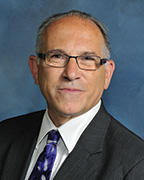Essential components of a professional insurance plan for real estate professionals - by John Torvi
 Landy Insurance Agency of Needham, Mass." width="144" height="180" /> John Torvi, Herbert H. Landy Insurance Agency
Landy Insurance Agency of Needham, Mass." width="144" height="180" /> John Torvi, Herbert H. Landy Insurance AgencyEven the most effectively run real estate practice can be victim of human error, allegations of malpractice, unhappy clients or just plain old bad luck. Protecting a business from the consequences of any of these requires an insurance program that best suits the needs of one’s particular situation. Not all businesses need all types of insurance policies, but understanding what each type of policy does will help you spend your insurance dollars more wisely as well as sleep better at night.
The backbone of any professional insurance program for a real estate practice is Errors & Omissions Insurance. This may be the one policy that any real estate firm might require. Simply put, E&O protects a business against allegations of an error or omission in the performance of providing a professional service. Such allegations could include a factual error, a contract violation or breach of duty, failure to perform in a timely manner or other error in providing or not providing services. It might also include fair housing or discrimination issues or escrow disputes. The great majority of claims against real estate brokerages have to do with disclosure/non-disclosure allegations. Errors & Omissions may also be the most complex type of policy to consider due to its’ numerous conditions and features. Some of the most important include:
• Claims Made Policy & Prior Acts Dates: A professional liability policy responds when a claim is made against the policy holder, not when the professional service was performed. The policy will respond if the professional service was performed after the prior acts (or retroactive) date on an in-force policy. A lapse in coverage may jeopardize your prior acts coverage, so it is important to renew the policy on time, but note that a change in insurance companies should not threaten your Prior Acts date as long as there is no coverage gap. Switching insurance carriers at your renewal date would not mean a loss of prior acts coverage.
•Definitions of Who Is Covered, Professional Services and Exclusions: Policies contain specific language about who is covered, how professional services are defined and what is not covered. All should be reviewed to determine if any of part of a practice falls outside of the parameters of coverage. For example, if you use independent contractors, are they noted as covered professionals? Does the definition of professional services include language about residential and commercial sales, property management, escrow, appraising and so on, or are certain services specifically excluded? Endorsements may sometimes be added to a policy to add coverage that is excluded in the main policy.
• Extended Reporting Periods: Professional liability may not end if one closes the business, retires or even becomes disabled or passes away. Extended reporting period ( sometimes called tail coverage) options, listed in most policies, will extend coverage from your prior acts date to a defined time into the future should a claim arise after the closure of a business.
There are many other aspects of a professional liability policy to be aware of, and as always, a knowledgeable consumer is a wise consumer.
An exponentially increasing concern is data breach and cybercrime. There are numerous policy options to respond to these problems, with better and less expensive coverage becoming more available.
• provides coverage should a business’s data be compromised. It can reimburse for notification costs, required credit monitoring, data forensics and restoration, crisis response, first and third person liability suits and other liabilities that might cost a firm tens or hundreds of thousands of dollars to manage on their own. Cybercrime coverage protects a business if escrow or trustee funds are misappropriated by wire fraud, social engineering or some other computer-based crime. Not all businesses need the cybercrime coverage, but a compelling argument can be made that all businesses need the data breach insurance.
• Business Office Policies – These policies, called BOP’s, combine the features of a General Liability policy and business equipment protection into one package. The General Liability portion protects a business if there is Bodily Injury or Property Damage incurred as a result of interacting with a business – i.e. a client slips and falls while in your office or while showing a property, or as a result of poor management of a property. Coverage is also provided should there be a fire, theft or other event resulting in a loss of business property. BOP’s are quite broad, and may also cover things like employee dishonesty, valuable papers, business interruption, hired/non-owned auto and much more.
• Workers Compensation – Coverage is mandated in all states if a business has any W2 employees. Typically, owners and officers may exclude themselves from the policy. Policies may include or exclude Independent Contractors, so if coverage is desired for them, policy language should be reviewed to determine coverage. Premiums are based on payroll and may be audited by the insurer. When noting the payroll to the insurer, care must be taken to not include payroll for anybody not being covered, such as an owner, to avoid paying too much.
This represents the foundation of a solid insurance program. There are other policies that might be appropriate for some, and consultation with an insurance representative knowledgeable in your profession’s insurance needs is recommended to obtain the coverage you need best representing your practice.
John Torvi is the vice president of marketing & sales at the Herbert H. Landy Insurance Agency, Needham, Mass.
Newmark negotiates sale of 10 Liberty Sq. and 12 Post Office Sq.


How COVID-19 has impacted office leasing - by Noble Allen and John Sokul

Five ways to ruin a Section 1031 Like-Kind Exchange - by Bill Lopriore

Make PR pop by highlighting unique angles - by Stanley Hurwitz








.png)